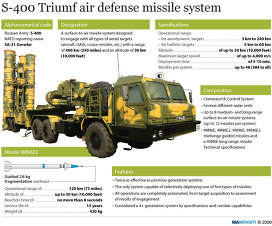
Putin pledges 400 ICBMs for Russia in 10 years
Russia’s armed forces will receive over 400 modern intercontinental ballistic missiles (ICBMs), more than 100 military spacecraft and over 2,300 new tanks within the next ten years, Prime Minister and presidential candidate Vladimir Putin said.
Earlier media voiced fears that by 2020, Russia’ ICBM arsenal could reduce by more than half as over 400 missiles would go beyond their maximum service life without timely replacement.
“Within the next decade, the armed forces will receive more than 400 modern ground- and sea-based intercontinental ballistic missiles, eight ballistic missile submarines, about 20 general purpose attack submarines, over 50 surface ships and some 100 military-purpose spacecraft,” Putin wrote in a new article for the Rossiiskaya Gazeta government daily.
He said the number will also include “over 600 modern aircraft, including fifth-generation fighters, more than a thousand helicopters, 28 regimental sets of S-400 [SA-21 Growler] surface-to-air missile systems, 38 division sets of Vityaz air defense systems, 10 brigade sets of Iskander-M (SS-26 Stone) tactical missile systems, more than 2,300 modern tanks, some 2,000 self-propelled artillery systems and guns, as well as more than 17,000 military vehicles.”
Putin said the ground, sea and air components of Russia’s nuclear triad are stable and sufficient at the moment.
Chief of the Russian General Staff, Army Gen. Nikolai Makarov said on February 15 that Russia would use nuclear weapons in response to any imminent threat to its national security.
The general said Russia’s nuclear deterrent is the cornerstone of strategic stability and serious efforts are being made by the Russian government to modernize the country’s nuclear triad.
The Russian Defense Ministry is planning to acquire at least 10 Borey class strategic nuclear submarines, thoroughly upgrade its fleet of Tu-160 Blackjack and Tu-95 Bear strategic bombers, and equip its Strategic Missile Forces with formidable Yars mobile ballistic missile systems.
Putin also wrote that he believes substantial investment in Russia’s defense sector, in particular, the armaments program, will be positive for the country’s economy.
This is Putin’s sixth article outlining the points of his election program in Russian media. The previous articles focused on general and economic issues, ethnic problems, democratic development and social policy.
Putin served two terms as Russia’s president between 2000 and 2008, but the Constitution barred him from standing for a third consecutive term. He became prime minister after his handpicked successor, Dmitry Medvedev, was elected president.
Russia will hold presidential elections on March 4. Putin, from the governing United Russia party, is the frontrunner in this year's election campaign. His closest rival is Gennady Zyuganov, the leader of the Communist Party. Other contenders are Liberal Democrat leader Vladimir Zhirinovsky, A Just Russia leader Sergei Mironov and independent billionaire candidate Mikhail Prokhorov.
http://en.rian.ru/russia/20120220/171407962.html


.jpg)